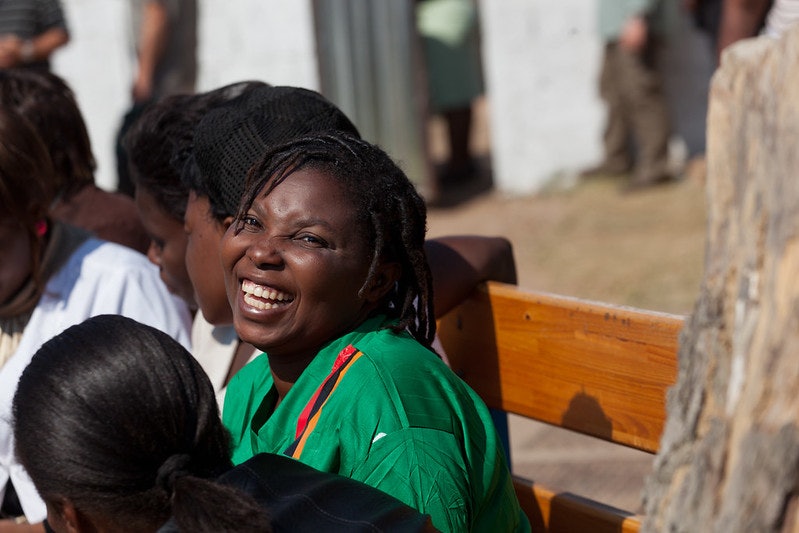The U.N. Climate Change Conference (COP29) in Baku, Azerbaijan went into overtime and concluded Nov. 24. Delegates wrangled until the final hour over the amount of financing wealthier countries would provide to poorer ones to tackle climate change.
Although an agreement was reached, the conference’s host, the kleptocratic dictator Ilham Aliyev, used the conference to boost his own legitimacy and line his pockets at the expense of democracy and human rights.
Aliyev, who was “re-elected” to a fifth consecutive term earlier this year with 92% of the vote, accelerated the arrest of journalists, opposition leaders, and environmental activists essential to open and substantive discussion of climate issues as well as transparent, accountable, and environmentally sound management of the country’s oil and gas resources.
Among those held by Baku is Gubad Ibadoghlu, an economist and former board member of the Extractive Industries Transparency Initiative who has questioned Aliyev’s corrupt management of Azerbaijan’s oil resources and wealth. “He is risking his life for this work,” Ibadoghlu’s eldest child Zhala Bayramova told Reuters, but awarding COP29 to Aliyev made his work “quite meaningless.”
Ibadoghlu was arrested on bogus charges in 2023 while on a visit from the UK, where he taught at the London School of Economics. After nine months he was released to house arrest, his health seriously damaged. Nearly three dozen members of Congress have written to Secretary of State Antony J. Blinken urging efforts to free Ibadoghlu so that he may travel abroad for medical treatment.
Also arrested in the months leading up to COP29 were Anar Mammadli, an advocate for free elections and a founder of the Climate Justice Initiative and Farid Mehralizada, a Radio Free Europe/Radio Liberty reporter.
Although not as powerful as Putin or China’s Xi Jinping, Aliyev is a significant force in the authoritarian challenge to the liberal democratic order. He is an effective practitioner of transnational repression — the attempt to silence critics who have taken refuge abroad through violence and intimidation. Freedom House reported Baku seized critics abroad five times between 2014 and 2021 while exploiting Interpol to have other critics detained abroad. Two critics of Aliyev have been brutally attacked in France, one fatally in October.
When it comes to buying influence abroad, Aliyev has a long and successful record. Azerbaijan spent billions to buy influence among European and UK politicians in a scheme that originated more than 10 years ago. Azerbaijan’s corrupt activities are also alleged to have reached the U.S.
Aliyev used COP29 for his own purposes, which included gaining legitimacy for his regime and mocking the climate agenda. According to the Organized Crime Corruption Reporting Project, all of Azerbaijan’s “official sponsors” of COP29 were businesses under the control of Aliyev and his close family members. The leader of Azerbaijan’s delegation to COP29 was caught on videotape offering investment opportunities to a state oil and gas company.
In a grandiose and hypocritical gesture, Aliyev declared a “COP truce” and cast himself as a peacemaker just over a year after he launched a surprise military takeover of the Armenian enclave Nagorno-Karabakh in September 2023. Almost all of the territory’s 120,000 Armenians were forced to leave. Baku still holds prominent civilian and military leaders of the enclave prisoner. Aliyev has also arrested Bahruz Samadov, a freelance journalist and researcher charged with treason for advocating peace with Armenia.
While opening the conference, Aliyev couldn’t hide his satisfaction at having bested those who objected to his hosting of COP29. “I have bad news for them. We have 72,000 registered participants from 196 countries. Among them are 80 presidents, vice presidents, and prime ministers. So, the world has gathered in Baku, and we say to the world: Welcome to Azerbaijan.”
The U.N.’s rules for COP need to be changed to exclude undemocratic regimes that don’t respect human rights. Authoritarians have achieved undue influence over COP and in the U.N. more broadly. This year’s COP was in Baku because Russia blocked all EU countries from hosting the conference in retaliation for their support of Ukraine.
Ali Karimli, who leads the opposition party Azerbaijan Popular Front, urges the West not to delude itself about Aliyev. Writing in The Economist, Karimli said his country faces “a pivotal moment” in which Azerbaijan’s people seek democracy and the rule of law, while Aliyev sides with the authoritarian clique to maintain power. Karimli, long a target of regime persecution, faces trial on defamation charges now that COP29 has adjourned.
Aliyev’s corrupt and repressive rule will continue now that the conference is over — but with a boost of legitimacy bestowed by the world’s participating democracies. Concluding the conference without achieving anything on behalf of Azerbaijan’s political prisoners gave him yet another victory. The U.S. should intensify its efforts on behalf of Ibadoghlu, Mammadli, Mehralizada, and Samadov.
































